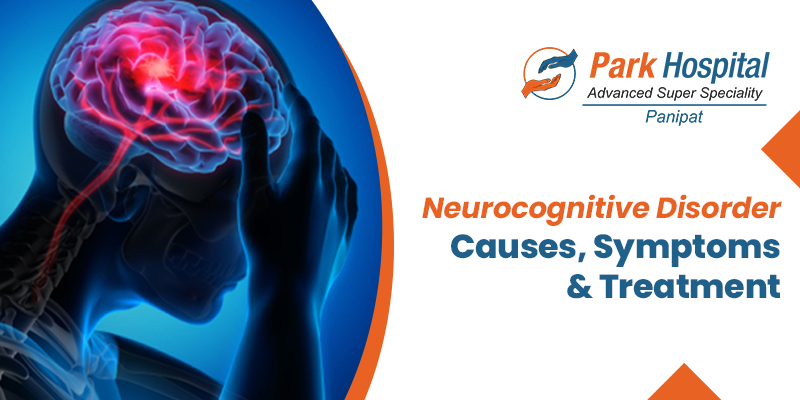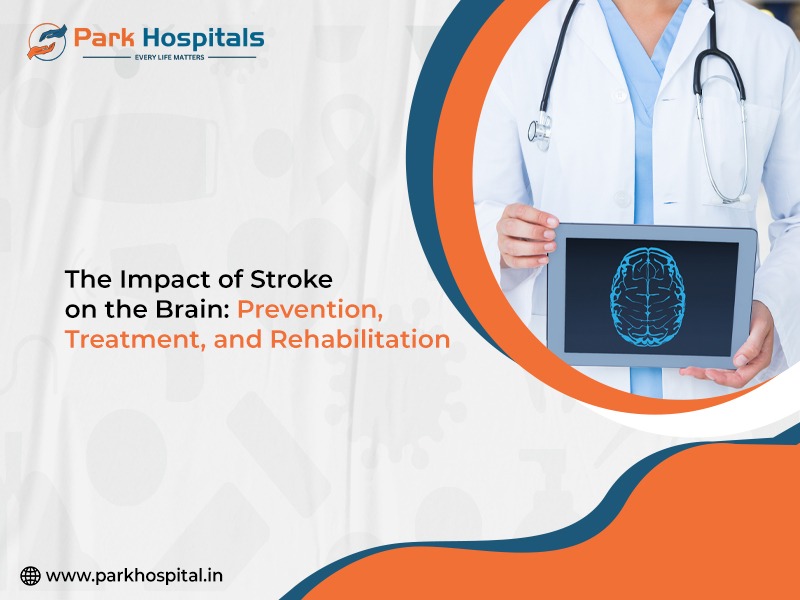Dizziness, headaches, and nausea are a few of the very common episodes of life, with headache disorders affecting around 40% of the population globally. But, it can get alarming for one if they experience it all, especially at the same time or at very short intervals. Owing to human tendency, one jumps to the worst possible scenarios, like brain injury. However, the figures at the best neurologist hospital in Jaipur suggest that these indications aren't the only result of the extremes but can be the outcomes of several other health concerns. Let's understand what these hints are possibly pointing at.
When to Be Concerned About a Brain Injury
A brain injury is not a result of any particular action or occurrence, rather it can step from several incidents, including falls, car accidents, sports injuries, or even a sudden jolt to the head. Not all brain injuries cause immediate or obvious symptoms, which is why knowing about these warning signs and understanding them is important.
If you've recently experienced a hit to the head or a violent shaking motion and are now feeling dizzy, nauseous, or suffering from headaches, these could be signs of a mild traumatic brain injury (TBI), such as a concussion. Other symptoms that may accompany these include:
● Confusion or trouble concentrating
● Sensitivity to light or sound
● Blurred vision
● Fatigue or sleep disturbances
● Memory issues
More severe brain injuries may bring additional symptoms like slurred speech, repeated vomiting, seizures, or loss of consciousness. In such cases, seeking emergency medical care is essential.
What Is Mild Traumatic Brain Injury (TBI)?
Mild traumatic brain injury (TBI), commonly known as a concussion, occurs when a sudden impact or jolt to the head disrupts normal brain function. While classified as "mild" because it is not usually life-threatening, it can still cause significant symptoms and complications. As a neurologist in Sonipat at Park Hospital believes, the common causes include falls, sports-related injuries, car accidents, or blows to the head. Symptoms may appear immediately or develop over hours or days, making it important to monitor changes in physical and cognitive function.
Health Problems That Can Stem from Dizziness, Headaches, and Nausea
Experiencing these symptoms over time or in combination with other issues could point to underlying health conditions that your body is trying to communicate with you, including but not limited to:
● Chronic Migraines: Recurring headaches, which can severely impact your daily life.
● Vestibular Disorders: Inner ear problems affecting balance and coordination.
● Neurological Disorders: Conditions like multiple sclerosis or Parkinson's disease that affect the brain and nerve function of the human body
● Cardiovascular Issues: There can be several heart-related issues that can result in dizziness or other problems for you like high or low blood pressure, heart rhythm disorders, or poor circulation.
● Metabolic Disorders: Diabetes or thyroid imbalances that impact energy levels and brain function.
● Mental Health Conditions: Anxiety, depression, and stress-related disorders can bring in physical symptoms over the course of time.
Other Possible Causes of Dizziness, Headaches, and Nausea
The best neurologist in Jaipur Rajasthan is of the opinion that while brain injuries can cause these symptoms, other conditions can as well. Some common non-injury-related causes include:
● Dehydration: Not drinking enough fluids can lead to dizziness, headaches, and nausea.
● Inner Ear Issues: Problems like vertigo or labyrinthitis affect balance and can trigger similar symptoms.
● Migraines: Severe headaches often come with nausea, dizziness, and sensitivity to light or sound.
● Low Blood Sugar: Skipping meals or underlying conditions like diabetes can cause dizziness and nausea.
● Anxiety or Panic Attacks: These can manifest with lightheadedness, nausea, and headaches.
What to Do Next
If you are experiencing dizziness, headaches, and nausea with no clear cause as per your self-diagnosis or after a recent head injury, then the first step you need to take care of is paying attention to the severity and duration of the symptoms. Consider the following steps:
● Rest and Monitor: If symptoms are mild, rest in a quiet environment and avoid screen time.
● Hydrate and Eat: Ensure you're drinking enough water and eating regularly to rule out dehydration or low blood sugar.
● Seek Medical Attention: If symptoms worsen, persist, or follow a head injury, the best neurologist in Jaipur Rajasthan or at other locations should evaluate you for a potential brain injury.
From Symptoms to Solutions: Acting Fast for Preferable Outcomes
Ignoring symptoms like dizziness, headaches, and nausea can be risky, especially if they stem from an undiagnosed brain injury. Whether the cause is a mild concussion, an inner ear issue, or another medical condition, timely care is crucial. At Park Hospital, expert neurologists and advanced diagnostic facilities ensure you receive accurate assessments and personalized treatment. If you or a loved one are experiencing persistent or worsening symptoms, don't wait—schedule a consultation and take proactive steps toward better health. Your well-being matters and expert care is just a visit away.
Also Read:
● Neurologist vs. Neurosurgeon: Understanding the Difference
● Top Neurological Conditions Treated by Neurologists





